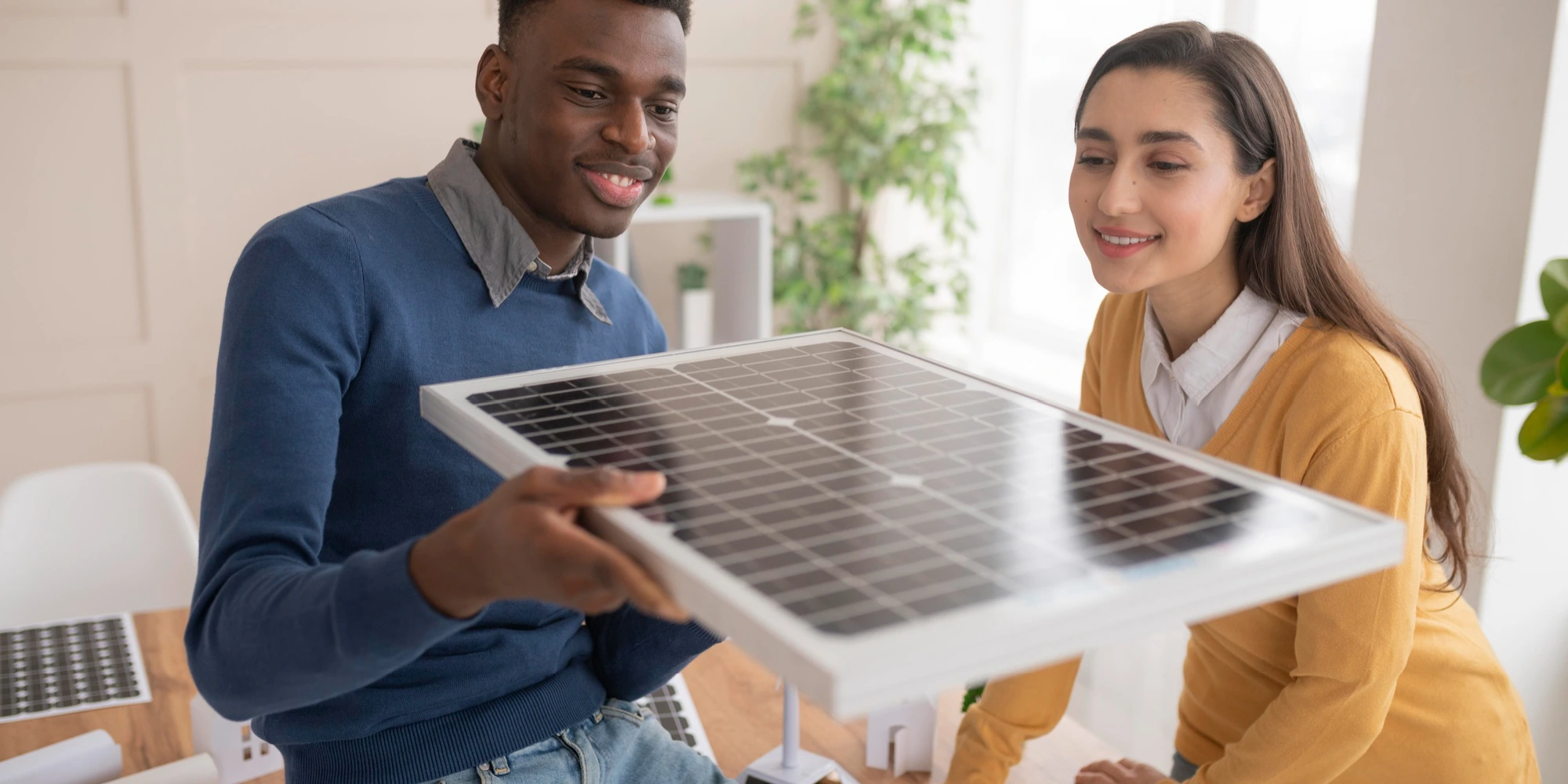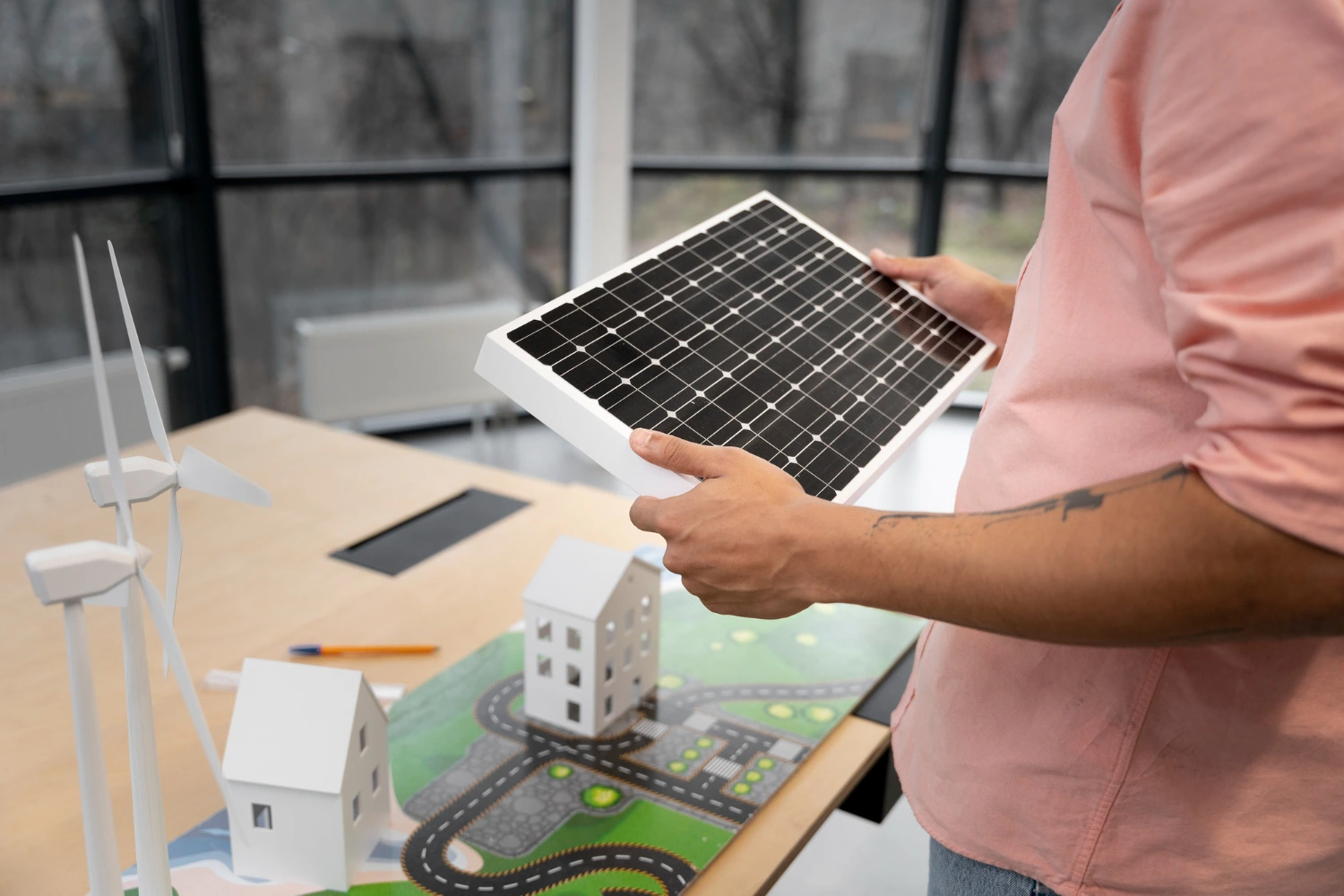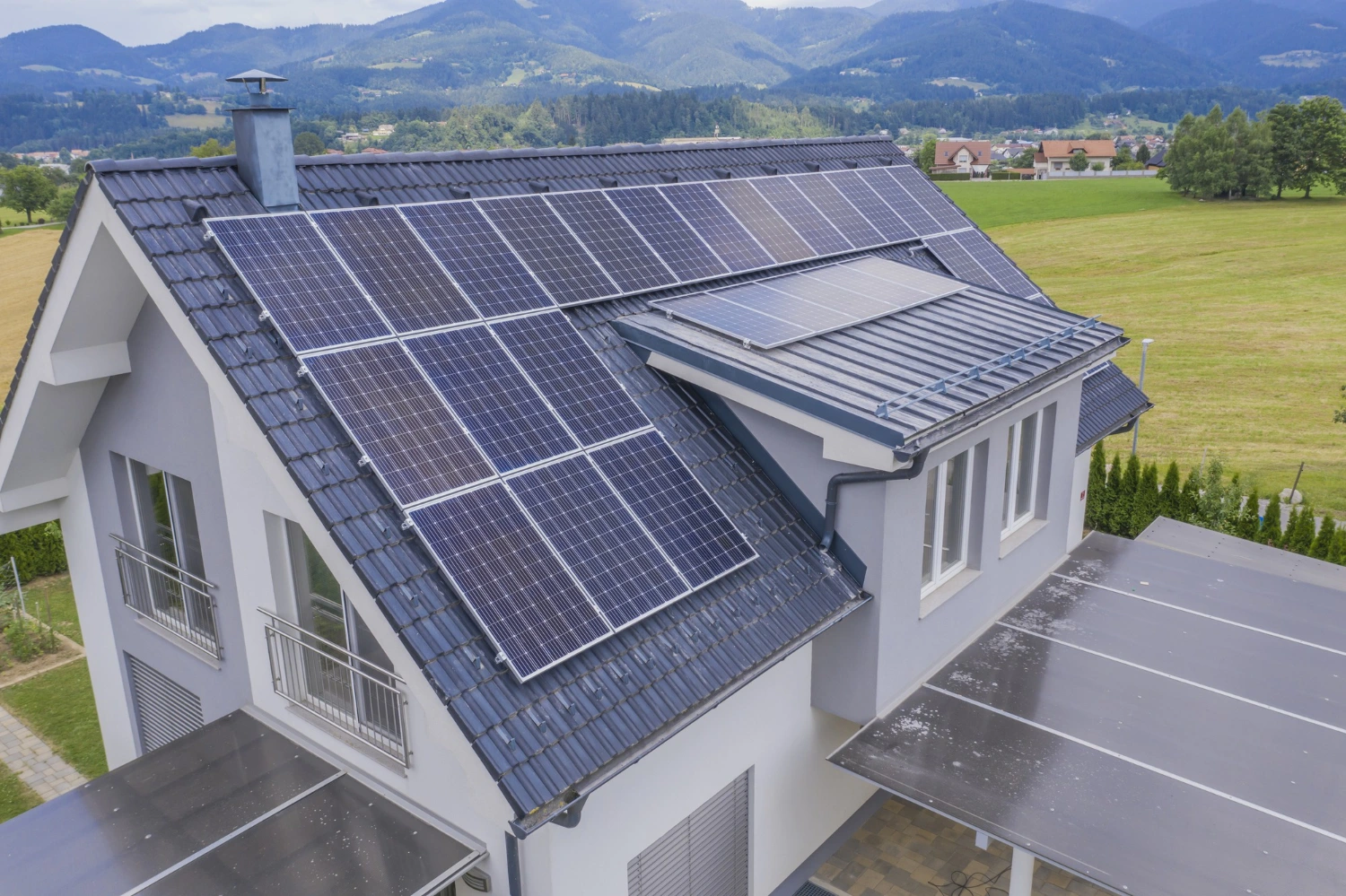Why Go Solar at Home?
Financial Benefits of Residential Solar
Switching to solar power significantly reduces or even eliminates monthly electricity bills. Over the lifetime of a solar system, homeowners can save tens of thousands of dollars. With rising utility rates, locking in a low, predictable cost for energy is more important than ever.
Environmental Impact and Sustainability
Solar energy is a clean, renewable power source that helps reduce greenhouse gas emissions and dependence on fossil fuels. By installing a home solar system, you directly contribute to combating climate change and improving air quality.
Increase in Property Value
Homes equipped with solar energy systems often sell faster and at higher prices. Studies show that buyers are willing to pay more for homes with solar panels, especially when energy savings are evident.

Understanding How Home Solar Power Works
Solar Panels and Inverters Explained
Solar panels capture sunlight and convert it into direct current (DC) electricity. Inverters then transform this DC electricity into alternating current (AC), which powers your home. Modern inverters also offer real-time monitoring and optimization for better efficiency.
How Net Metering Saves You Money
Net metering allows homeowners to receive credit for excess electricity their solar panels produce. This extra energy is sent back to the grid, reducing or offsetting monthly electric bills. In many cases, homes can even receive a surplus check at the end of the year.
Energy Storage Options
Battery storage systems, like the Tesla Powerwall, allow you to store excess solar energy for use at night or during grid outages. This increases your home’s energy independence and reliability, especially during blackouts or storms.
Choosing the Right Solar System for Your Home
Grid-Tied vs Off-Grid Systems
A grid-tied system connects to your utility provider, offering the benefits of net metering and backup power. Off-grid systems, on the other hand, operate independently with battery storage and are ideal for remote homes without utility access.
Sizing Your Solar Power Setup
The size of your solar system depends on your household’s energy consumption, roof size, and local sunlight availability. A professional installer will assess these factors to design the most efficient and cost-effective system for your needs.
Choosing a Reliable Solar Installer
Choosing an experienced and certified installer is key to ensuring long-term performance and warranty coverage. Look for companies with strong local reputations, transparent pricing, and comprehensive service packages.


Costs, Savings & Incentives
Initial Investment vs Long-Term Savings
While the upfront cost of solar installation can range from $10,000 to $25,000, the return on investment is substantial. Most systems pay for themselves within 6 to 10 years through energy savings alone.
Government Incentives and Tax Credits
Homeowners can take advantage of federal, state, and local incentives. The federal solar tax credit (ITC) currently allows you to deduct 30% of installation costs from your taxes, significantly reducing the total price.
Financing Options for Homeowners
From solar loans and leases to power purchase agreements (PPAs), there are various financing methods available to suit different budgets. Many programs offer zero-down options and favorable interest rates.
Maintenance and Longevity
How Long Do Solar Panels Last?
Most high-quality solar panels last 25 to 30 years or more. Over time, their efficiency may decrease slightly, but most systems continue to perform well beyond their warranty period.
Common Maintenance Tips
Solar panels require minimal maintenance. Cleaning them a few times a year and ensuring they remain free of debris, snow, or shade ensures optimal performance. Many systems come with monitoring apps to alert you of any issues.
Warranty and Support
Look for panels with at least a 25-year performance warranty and a workmanship warranty from your installer. A solid warranty ensures peace of mind and long-term protection.
Is Solar Right for Your Home?
Sunlight Availability and Roof Suitability
Solar panels are most effective on south-facing roofs with minimal shading. However, east and west-facing roofs can also work. A site assessment will help determine your home’s solar viability.
Energy Consumption Patterns
Your average monthly electricity usage will influence the size and type of solar system you need. Homes with high energy consumption benefit greatly from solar energy, especially when paired with battery storage.
Getting a Professional Assessment
Before installation, a solar expert will evaluate your home’s roof structure, angle, shading, and electrical panel to ensure your home is ready for solar. They will also help you understand potential savings and ROI.
Why Choose LIXIA for Your Home Solar Needs?
Our Experience and Expertise
LIXIA has years of experience delivering tailored residential solar solutions across various home types. Our certified installers use only top-tier components for long-lasting performance.
Customized Residential Solutions
We understand that every home is different. That’s why we provide custom designs, clear proposals, and personalized service to ensure your solar system meets your exact needs.
Local Support and Ongoing Service
As a local provider, we’re committed to supporting our community with prompt service, ongoing maintenance, and a dedicated support team you can trust long after installation.
FAQs About Solar Power for Home
Q1: How much does it cost to install solar panels at home?
A: Installation costs vary by location, system size, and energy needs, but the average is between $15,000–$25,000 before incentives. Tax credits and rebates can significantly reduce this cost.
Q2: Will solar panels still work on cloudy days?
A: Yes, solar panels can generate power on cloudy days, though at reduced efficiency. Modern systems are designed to function well in various weather conditions.
Q3: How long does a home solar installation take?
A: From consultation to activation, the process typically takes 1–3 months, depending on permitting and equipment availability. Installation itself usually takes 1–3 days.
